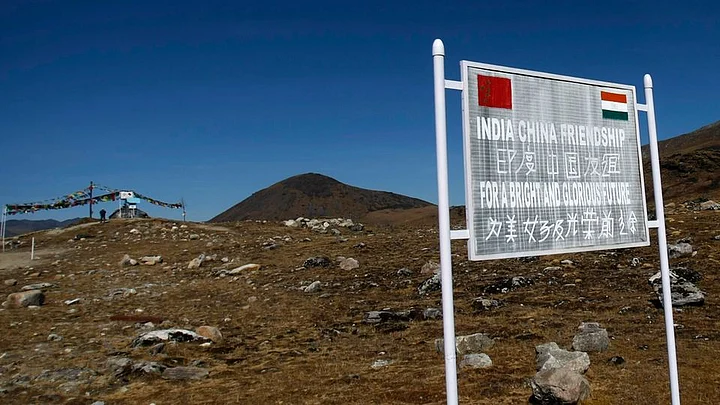China today dismissed Defence Minister Arun Jaitley's remarks that India of 2017 is different from what it was in 1962, saying China too is different and warned that Beijing will take "all necessary measures" to safeguard its territorial sovereignty.
"If they are trying to remind us, the situation in 1962 was different and India of 2017 is different,” Jaitley had responded to China's oblique reference to the war the two countries had fought 55 years ago by asking India to learn from "historic lessons".
He had also said the current standoff between Indian and Chinese troops in the Sikkim sector was triggered by Beijing.
Responding to Jaitley’s remarks, Chinese foreign ministry spokesman Geng Shuang said, “He is right in saying that India in 2017 is different from 1962, just like China is also different.”
He said the border between the two nations in the Sikkim sector is well demarcated under the 1890 Sino-British Treaty.
"I would like the Indian side to respect the 1890 treaty immediately and pull back the border troops which have crossed into Chinese territory back to the Indian side of the boundary.
"China will take all necessary measures to safeguard its territorial sovereignty," he warned. China and India have been engaged in a standoff in the Doka La area near the Bhutan trijunction for almost a month.
Sikkim, which became a part of India in May 1976, is the only state which has a demarcated border with China. The lines are based on a treaty signed with the Chinese in 1898. Doka La is the Indian name for the region which Bhutan recognises as Dokalam, while China claims it as part of its Donglang region.
Geng also accused India of using Bhutan as a "cover up" for the "illegal entry" into the Dokalam area over which Bhutan has lodged a protest with the Chinese government.
"In order to cover up the illegal entry of the Indian border troops, to distort the fact and even at the expense of Bhutan's independence and sovereignty, they try to confuse right from wrong, that is futile," Geng said.
He said China has "no objection to normal bilateral ties between India and Bhutan, but firmly opposed to the Indian side infringing on Chinese territory by using Bhutan as an excuse."
Asked whether any talks are going on between India and China to resolve the Sikkim standoff, Geng said, "After the illegal entry in the border took place, China has lodged solemn representations at different levels with the Indian side in Delhi and Beijing."
"The line of diplomatic communication between two sides is open and smooth," he said.
Ahead of the Foreign Ministry briefing, state-run Global Times quoted experts as saying that China will resolutely safeguard its sovereignty in the border conflicts with India even at the cost of war.
As the standoff at the Dokalam area continued for a third week, the longest between the two sides, the official media and the think-tanks in China said that “war is possible if the conflict between India and China is not handled properly”.
Of the 3,488-km-long India-China border from Jammu and Kashmir to Arunachal Pradesh, a 220-km section falls in Sikkim.
Wang Dehua, a professor at the Shanghai Municipal Centre for International Studies, told a Chinese daily that India has been treating China as its biggest competitor since 1962. He opined this is because both nations share many similarities such as huge populations and both are developing countries.
“In 1962, China fought a war with India after the latter encroached on Chinese territory, resulting in the deaths of 722 Chinese troops and 4,383 Indian soldiers,” the daily said. Experts called on both sides to resolve the conflict through dialogue and negotiations, it said.
"Both sides should focus on development rather than conflict or war," Zhao Gancheng, director of the Centre for Asia-Pacific Studies at the Shanghai Institute for International Studies, told the newspaper.
He said a conflict between the two sides may give other countries a chance to take advantage, for example, the US.
"India should change its hostile attitude toward China as a good relationship is beneficial for both sides," Wang said.
The Chinese experts also took exception to reports that India's Defence Ministry is surveying the China-India border in order to build an "all-weather railway corridor" with broad-gauge network for swift movement of troops and weaponry.
"India is trying to catch up with China in the construction of frontier defence," Zhao said.
(With PTI inputs.)
(This admission season, The Quint got experts from CollegeDekho.com on board to answer all your college-related queries. Send us your questions at eduqueries@thequint.com)
